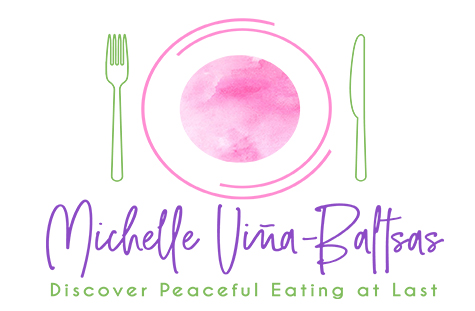Body acceptance doesn't come easy, especially for midlife women! After all, midlife women are often faced with divorce, an empty nest, peri/menopause, retirement, caring for aging parents, losing friends and family members, etc. Can you relate?
Listening to podcasts, calling a trusted friend, journaling, and connecting online in body-positive spaces can all be helpful strategies but they aren't always available or appealing to us in moments of discomfort.
When negative thoughts surface about our bodies we need to be intentional about how we respond to them. One way to do this is with self-inquiry.
Self-inquiry helps to create a pause so we can begin exploring what may be going on beneath the "I feel ___________ (fat, old, lazy, washed up, etc.)." language. Self-inquiry also helps us to understand our experiences in new ways, develop new behaviors, and possibly recognize our blind spots.
Inquiry is a tool I often use during coaching sessions to help my clients gently excavate unhelpful beliefs that are keeping them from moving forward. In fact, some of the biggest "a-ha" moments my clients experience happen when I ask thought-provoking questions like some of the ones I'm sharing with you.
The great news about self-inquiry is that it's available to us all the time.
The next time you are struggling with body acceptance, consider asking yourself one or a few of these questions and see what happens. I have a lot more questions (and some come to me at the moment) that I use but these will give you some idea of what I'm talking about so you can get started. Of course, it's best when these questions are asked in a compassionate, curious manner instead of with a judgy or condemning voice.
What criteria are you evaluating yourself against?
What meaning are you attaching to your size/weight/age?
Since you cannot control your body, what else can you control that is within your reach?
I use self-inquiry often and it works wonders for me! If you are already using self-inquiry but you are still bogged down with frequent negative thoughts about your body, aging, movement for mobility, etc. schedule time with me. This journey wasn't meant to be done alone. Support may be the missing piece you need to get over the hump.

